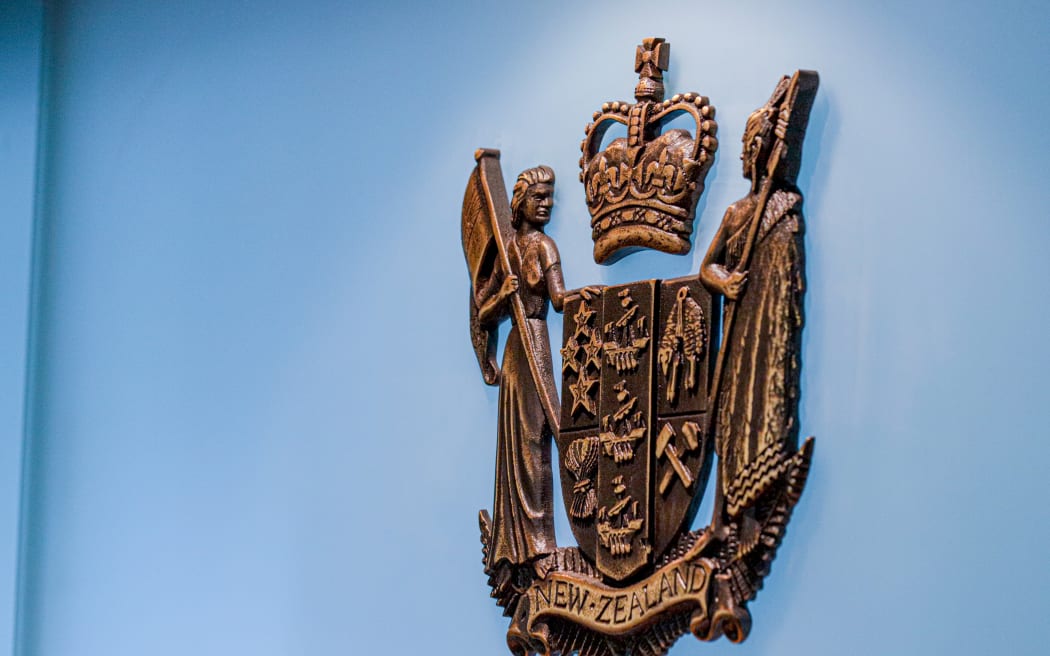
The Criminal Bar Association says three strikes legislation does not work. File photo. Photo: RNZ/Marika Khabazi
The government's plan to reintroduce a three strikes regime is being strongly opposed by lawyers, who argue there is no evidence it reduces crime or helps people rehabilitate.
The three-stage system of increasing consequences for repeat serious violent offenders was repealed by the former Labour government, but the current coalition government has announced it will be restored.
The government said the new policy would apply only to sentences of at least two years, give judges more discretion in cases where harsh outcomes would be "manifestly unjust" and provide some benefit for offenders on their final strike if they pled guilty.
But Criminal Bar Association vice president Annabel Cresswell said the legislation did not work.
"Criminal justice policy has to be based on evidence, and there's no evidence that three strikes either reduces crime or assists with rehabilitation," she said.
Cresswell said the regime was based on arbitrary rules that failed to take into account factors like mental health, intellectual disability, youth and addiction.
"Māori, Pacific Islanders and poorer communities are the ones that are disproportionately affected. They're the ones that are in the prisons, they're the ones that are staying in prisons longer," she said.
The association said New Zealand did not have a judiciary that was soft on crime, with a higher incarceration rate than Australia or the United Kingdom, at 173 people per 100,000, compared to 157 and 145 respectively.
Preventive detention was a strong deterrent for violent or sexual offenders and judges should be free to pass sentences without interference from politicians, the association said.
The association cited a 2018 report by former Prime Minister Bill English that criticised New Zealand's incarceration rates as being based on "dogma, not evidence", as well as the move towards a "progressively retributive rather than a restorative approach to crime with unsupported claims that prisons can solve the problems of crime".
The association said prisoners each cost $193,000 per year to house - costs that would inevitably increase with the imposition of longer sentences.
Prime Minister Christopher Luxon said the reintroduction of the three strikes law sent a clear message to perpetrators of violent and sexual crimes.
He said criminals "need to know that their actions will not be tolerated by this government, and we are determined to keep our community safe".
However, when asked what advice he had seen the law would actually reduce violent crime, Luxon referred repeatedly instead to previous examples where similar laws had been brought in.
"Well, again, what we've seen is we know that actually we've got to be tough on crime," he said. "We know that we have to send a message very clearly.
"We've seen different pieces of advice, there's been advice from previous examples where we've had it before, and likewise we've seen examples from overseas jurisdictions like California."
"I am telling you the advice is the counterfactual - which is what we've seen happen over the last six years. Violent crime's gone up over 30 percent, year in, year out, gotta stop," he said.
Luxon also responded to the criticism of the previous bill that it disproportionately affected Māori and Pacific Islanders, saying Māori were also more likely to be the victims of crime.
"Our goal here is to incarcerate violent offenders, violent sexual offenders. I don't care whether they're Māori or non-Māori, they're coming off our streets because they cause pain and suffering to regular New Zealanders," he said.
"If this piece of legislation actually saves one person from the pain and suffering caused by violent, sexual activity, violent sexual criminal activity, then that's a good thing ... that is well worth it, and I make no apologies about it."
Labour leader Chris Hipkins said there was no evidence the proposed regime would reduce violent offending.
"I'm very sceptical about mandatory minimums generally. If you look around the world... where they are imposed they generally lead to unjust and inequitable outcomes.
"I think when Parliament starts telling judges how to rule, then actually we start to break down some pretty basic, important constitutional principles."
In a statement, Labour's justice spokesperson Duncan Webb said three strikes had "little evidential backing" and the government was reviving it "just to look tough".
"This is political posturing of the worst kind," he said. "There was almost no evidence to show it deters offending, and instead it resulted in severe distortions in sentencing third strike offenders."






